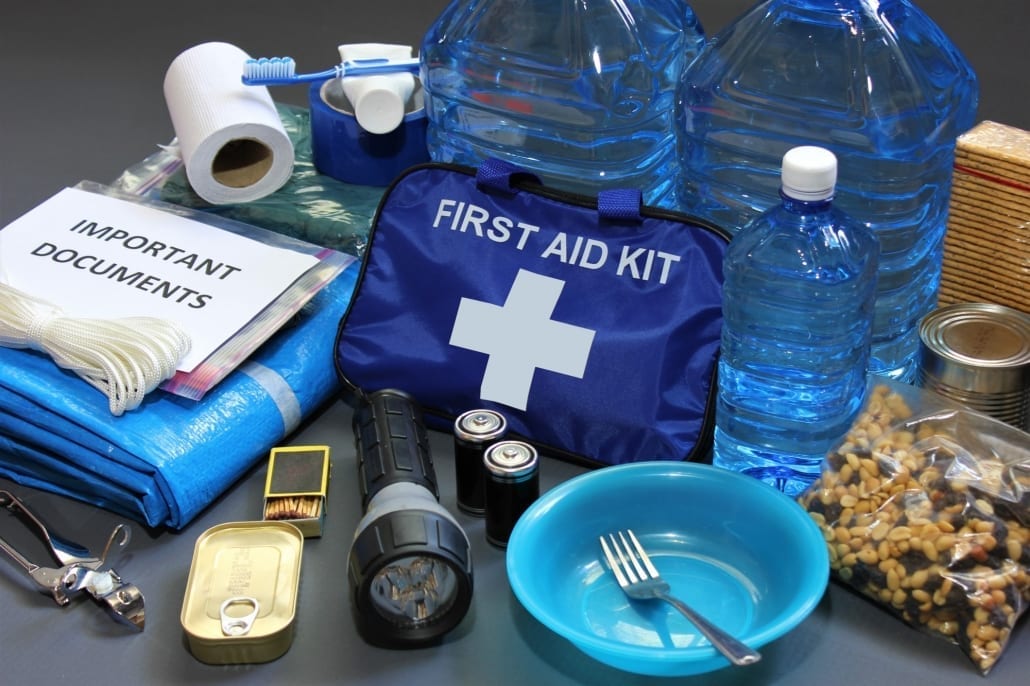A Small Business Owner’s Emergency Preparedness Checklist

Many small businesses are, unfortunately, not ready for emergency situations. It’s why about 40 percent of small businesses end up closing down following natural disasters and other emergencies.
You can avoid this fate by creating an emergency preparedness checklist for your small business. You should be especially mindful of doing this if your small business is located in an area that gets hit with a lot of hurricanes, tornadoes, earthquakes, and other weather-related emergencies.
Take a look at some of the things you should do as a small business owner to protect your property and, more importantly, yourself and your employees.
Identify Potential Emergency Situations
There are some emergency situations that will pop up out of the blue and catch small business owners completely off guard. If, for example, a car drives through the front of your business, that’s not something you would have been able to predict.
But most of the emergency situations that small businesses face have to do with the weather. And while some of these situations can catch small business owners asleep at the wheel, most of them should be things that are on your radar.
Depending on where your small business is, it could be subjected to:
- Hurricanes
- Tornadoes
- Earthquakes
- Blizzards
- Flash Floods
- Wildfires
Your emergency preparedness checklist should include details on how you’ll respond to each of these things. But it all starts with identifying which of them are most likely to impact your small business.
Figure Out Ways to Respond to Each Specific Type of Emergency
Once you know which types of emergency situations your small business could potentially face, the next order of business will be to figure out how you’ll handle each one. This will require some careful planning on your part.
Sit down and take a look at each type of emergency situation and think about how it could affect your small business. This will help you decide what you’ll need to work your way through an emergency situation.
For instance, if your small business is positioned right in the middle of a city that gets hit with bad hurricanes every few years, you’ll need to find the best ways to respond to hurricanes. You should plan to do it by:
- Boarding up windows and doors prior to a hurricane touching down in your city
- Moving electronic equipment to a place where it won’t get wet if water makes its way into your small business
- Securing anything that could get washed away during flooding in your area
Every emergency situation is a little bit different and will require you to take different steps. The key is outlining a detailed response plan for each individual situation.
Outfit Your Small Business With the Right Tools to Handle Emergencies
In order to respond to emergency situations, you’re going to need to have more than just response plans in place. You’re also going to need a series of tools that will help you carry your plans out.
Prior to a hurricane, for instance, you’ll need to have everything from hammers and nails to plywood and sandbags on hand to prepare your small business. Without these things, it’s going to be difficult to get your small business ready for an emergency.
Yet, you would be surprised to see how many small business owners wait until the very last minute to try and obtain these tools. Some end up not being able to get the tools they need to shore up their small businesses and make emergency situations worse for their businesses.
See which tools you will need to respond to different emergency situations and invest in them long before you ever have to pull them out. It never hurts to have these tools stored away since you never know when you could need them.
Put a Communication System Into Place for Emergency Situations
Communication is going to be of the utmost importance when an emergency situation strikes.
You’re going to need to communicate with your employees to let them know what you need them to do to keep your small business safe. You’re also going to need to communicate with other small business owners in your area so that you can lend a hand to one another.
And of course, you’ll need to communicate with your local police station as well as your local fire station in many cases. You might need to have them come out to assist you with an emergency.
Figure out who from your small business is going to be communicating with others during an emergency situation. Whether it be you, your general manager, or someone else, there should be a point person in place for all communication efforts.
Get Out Ahead of Emergencies as Best You Can
As we mentioned earlier, it’s impossible to predict all emergency situations. There are going to be emergencies that sneak up on you from time to time.
But you can get out ahead of many emergency situations by paying close attention to what’s happening in the news. If there is a hurricane threatening to touch down in your city, you can map its progress and see how much damage it could potentially do to homes and businesses in your area.
This will help you prepare for emergencies so much better than you would be able to otherwise.
Start Checking Items Off Your Emergency Preparedness Checklist Today
You don’t have to allow a hurricane, an earthquake, or another type of emergency to cripple your small business. By creating an emergency preparedness checklist, you can limit the amount of damage that an emergency does.
Use the tips listed here to formulate your own emergency preparedness checklist based on the potential emergency situations your small business might face. You won’t have to worry about an emergency shutting your business down for good when you prepare for it ahead of time.
Read the articles on our blog to find out more about the emergencies that could bring your small business to a halt.













Leave a Reply
Want to join the discussion?Feel free to contribute!